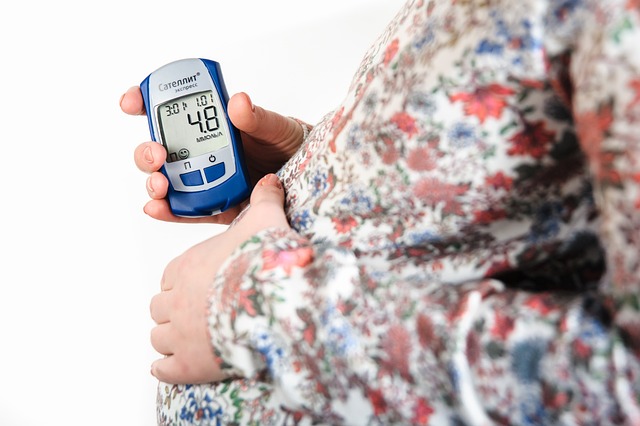As we recognize Breast Cancer Awareness Month, it’s common to have questions about how breast cancer affects not only treatment and prevention but also the impact it may have on your future, especially when it comes to having children. At PFCLA, we believe it’s crucial to provide insights on how breast cancer can influence your fertility and what steps you can take to safeguard your reproductive options before undergoing any cancer treatment.
This article aims to inform you about the potential effects of breast cancer treatment on your fertility and the various ways to prepare for your future family aspirations, even after facing such a significant health challenge.
How Breast Cancer Treatments Can Impact Fertility
Before starting cancer treatment, it’s vital to consult your healthcare provider about how these treatments may affect your fertility. Many young women diagnosed with breast cancer hope to have children after completing their treatment. However, certain therapies, especially some chemotherapy regimens, can lead to infertility.
Infertility may stem from several factors, including a diminished ovarian reserve, poor egg quality (often linked to age), hormonal imbalances, and physical damage to the reproductive system that hinders egg release or fertilization. Women are born with a fixed number of eggs, and hormonal signals prompt the release of mature eggs during the menstrual cycle until menopause occurs.
Chemotherapy can disrupt menstrual cycles, potentially leading to temporary or permanent cessation. It also impacts ovarian function and the quality and quantity of eggs. Thankfully, there are various options for preserving fertility before embarking on breast cancer treatment.
Fertility Preservation Options for Breast Cancer Patients
In Vitro Fertilization (IVF) and Cryopreservation
Prior to beginning breast cancer treatment, you might consider several fertility preservation options, with in vitro fertilization (IVF) being the most effective. IVF involves retrieving eggs from your ovaries, fertilizing them in a lab with sperm, and then transferring the resulting embryos into your uterus.
Egg Cryopreservation
If you’re single and prefer not to use donor sperm, egg freezing could be a suitable choice. The process typically begins with fertility hormone medications on the second or third day of your menstrual cycle, aimed at stimulating your ovaries to produce multiple eggs. Individual responses to these medications can vary based on age and ovarian reserve. Generally, it takes about 10 to 14 days from starting medication to egg retrieval. The retrieved eggs are then frozen and can be thawed later for fertilization and pregnancy.
While there is a slower freezing method available, PFCLA exclusively uses egg vitrification, which has shown better pregnancy rates. After vitrification, your eggs will remain frozen until you decide to use them.
Embryo Cryopreservation
Freezing embryos is often regarded as the most effective option for preserving fertility. You can choose to create embryos using your partner’s or a donor’s sperm. Once the eggs are retrieved and properly prepared in the lab, they can be either incubated with sperm overnight or fertilized via direct injection. After a day, an embryologist will check the status of the fertilized eggs, which will then be cryopreserved for future use.
Discussing IVF with your doctor may enhance your chances of having children after breast cancer treatment. It’s essential to address any concerns with your fertility specialist, as they will provide tailored options based on your unique situation, including the possibility of delaying chemotherapy for fertility preservation.
Is It Safe to Get Pregnant After Breast Cancer Treatment?
Generally speaking, pregnancy is considered safe for breast cancer survivors, both for the mother and the baby. Many women successfully conceive after treatment. However, it’s often recommended to wait a specific period after completing chemotherapy before trying to conceive. This precaution allows your body to recover and reduces the risk of complications if cancer were to recur during pregnancy.
If you’ve had breast cancer and are contemplating starting a family, consult with your healthcare provider to discuss how your previous treatment could affect your chances of pregnancy. Many younger breast cancer survivors successfully achieve healthy pregnancies.
Support for Breast Cancer Patients & Survivors
Sharing experiences with other women who face similar fertility concerns can be incredibly beneficial. Remember, the journey through breast cancer is challenging, but you don’t have to navigate it alone. Building a solid support system can make a significant difference during tough times. Stay hopeful!
For additional information regarding your journey after a breast cancer diagnosis, you can check out resources like Breastcancer.org and Share Cancer Support. If you’re interested in preserving your fertility, our egg and embryo freezing services at PFCLA can offer peace of mind as you focus on your recovery.
Summary
In summary, breast cancer treatment can impact a woman’s fertility, but various options like IVF, egg freezing, and embryo cryopreservation can help preserve reproductive potential. Consultation with a fertility specialist is crucial to navigate these choices and ensure the best possible outcomes for future pregnancies.

